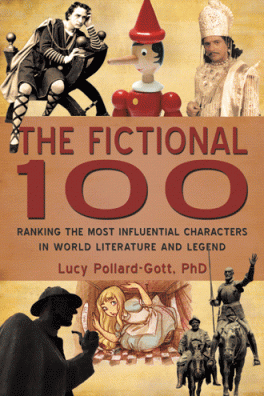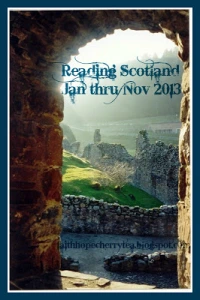My Review
When a plot involves finding an old document, such as an old diary or a set of letters, I feel both an emotional tug and that insistent spark of curiosity–I am soon deeply committed as a reader. Time and Regret offers such a plot and wastes no time in getting it underway, introducing the intriguing set of diaries in the first chapter. Mary K. Tod’s heroine, Grace Hansen, is newly divorced; while sifting through her belongings to make a clean start, she finds a “battered tackle box” left in her attic by her grandfather during one of his visits–with no explanation from him at the time. Prying it open, she finds some letters, a photograph, a map, a French magazine, and a set of notebooks tied with a ribbon. These notebooks prove to be her late grandfather’s World War I diaries, and the photograph shows young Martin Devlin and his friends Pete, Bill, and Michel as they were in May 1915. They are so young, as were most of those serving in the “Great War,” and the diaries will tell their story, but above all it relates the particular experiences of Martin.
It is a marvelous way to connect generations in a family, both in real life and in fiction. And this is especially true when the earlier generation lived during a war, a time the younger generation finds hard to imagine but desires to understand better. A diary can give it form and substance. It also connects people when death separates them, putting them beyond questioning. And Grace will have many questions as she reads the diaries. Tod adds the element of mystery to this gift from the past because her grandfather left her an important message, but chose to hide in it in a puzzle only she is likely to solve; solving puzzles was one of their shared pastimes and passions. The brief note he leaves her, saying, “To my dearest Grace, read carefully. I never should have taken them,” is cryptic indeed. What could he have taken, she wonders. As she traces his journey through the war years, she finds the stakes of solving this puzzle may be even higher than she anticipated.
Grace’s prickly grandmother is stubbornly reticent about the war years and offers little or no help, so Grace decides to take matters into her own hands with a bold stroke. She will go to France and Belgium to visit the places, one by one, that figure in her grandfather’s account of his war experiences. After the thorough upheaval of divorce, this change is just what she needs, and it begins to rebuild her confidence.
As she travels from one town or site of a battle to the next, she reads and rereads her grandfather’s words carefully, as he had urged her to do, and a picture of him begins to form in her mind and heart. She also confronts the devastation of the war itself.

Ruins of Ypres, Belgium, 1919. Photo by W. L. King. Library of Congress, Reproduction Number: LC-USZC2-6192
The Belgian town of Ypres, which was the locus of several significant battles, costing hundreds of thousands of lives, was one of her stops. It was also a base from which to visit surrounding villages, such as Passchendaele, where some of the fighting occurred.
Wherever I stopped, I checked Martin’s diaries. I thought of him as Martin now, not Grandpa, like a character in an unfolding story rather than a man I had known for more than thirty years. Having read the notebooks three times from beginning to end, I was familiar with the entries, yet I felt the need to honor his service at every opportunity. (p. 25)
The war memorials erected at these sites help Grace in this pledge to herself to honor the service of her grandfather and so many others, and through their sheer size, these monuments, along with their adjacent cemeteries, convey the enormous scope and cataclysmic effects of the war. The Battle of Thiepval Ridge, the first battle of the Somme in September 1916, was marked by an imposing structure 140 feet high with foundations 19 feet thick (a detail Grace learns from her guidebook). Beside it she felt like “a tiny insect.” The Thiepval Memorial was dedicated to the 72,246 British soldiers missing during fighting in the Somme, not only in that initial battle, but in the years 1915 to 1918. It was designed by the renowned British architect Sir Edwin Landseer Lutyens. The ingenious fractal structure of its arches, splitting with each new layer into more and more arches (set at right angles), echoes the row upon row of grave markers.
In writing Grace’s story, Tod does more than intersperse WWI diary entries in the present-day narrative. Martin’s entries are revelatory in many ways but also terse and constrained by the pain he is feeling. One can imagine that diaries of the time would be a place to unburden troubled minds, yet it might take many years to relinquish certain secrets, even to oneself. Tod’s novel tacitly acknowledges this by providing chapters of third-person narrative fleshing out Martin’s story following each of his diary entries. These paired accounts during wartime are then interspersed with Grace’s life events unfolding in 1991.
This proves to be very effective and necessary. One memorable example for me paired Martin’s diary entry reporting his channel crossing and landing at Le Havre. From there he will travel to the front. Tod’s narrative tells us what Martin’s first view of the front looked like and hints at how much it shocked him.
Beyond the next rise, the war burst into view, a zigzagging patchwork of Allied trenches facing German lines. The scene looked nothing like Martin had imagined. Instead of deep, carefully constructed trenches designed to protect their men, uneven ditches were connected together in haphazard fashion, with mounds of earth and sandbags marking the lip of every section, and soldiers standing guard at uneven intervals. A sudden breeze carried the smell of mud, sewage, rotting flesh, gunfire, and death.
As far as he could see, the land had been blown to bits, leaving nothing but brown and gray and black, devoid of vegetation except a pocket of shattered tree trunks to the far right. Great rolls of barbed wire and deep craters partially filled with water defined the space between the lines. No-man’s-land. (p. 33)
Martin was certainly not the only character affected by the war, or the only one appearing in his diaries. I appreciated the way we see Grace’s grandmother, Cynthia, as a young woman during the war–when she first met Martin–and then later when Grace is seeking to uncover the family’s past. The intervening years brought many changes to her grandmother’s life but her stubbornness and her determination to secure happiness despite the war proved to be her most enduring traits.
At one point during the war, the weight of grief and responsibility from losing men close to him began to take its toll on Martin, interfering with his performance of duty. His captain ordered a few weeks of medical leave at a facility in England. As a psychologist, I found the therapy sessions between Dr. Berger and Martin especially interesting. These scenes separate Martin from the group setting of trench life with his comrades and mark a turning point for portraying his individual character, his frame of mind, and the underpinning of his choices.
Besides the regrets that many characters harbor, trust becomes a major theme for Grace. The novel begins with broken trust because Grace’s husband Jim suddenly demanded a divorce. Then she discovers that her grandfather has entrusted her with his diaries, and the secret they conceal. When secrets are involved–family secrets, business secrets–who can Grace really trust? Can she even trust her grandmother? Someone is following Grace in France–a man wearing a distinctive fedora–and he seems determined to interfere with her apparently innocent plans to discover her family’s story. Could her grandmother be trying to thwart her efforts to uncloak the past? Finally, she desperately wants to trust in her new feelings for Pierre Auffret, an attractive art curator she meets during her travels, and with whom she joins forces to investigate the path her grandfather took. The romantic frisson between them is spontaneous and exhilarating. Her heart tells her that it is mending, but still, she is not sure whether her trust can keep pace with her hopes for the future.
In her three novels so far, Unravelled, Lies Told in Silence, and now Time and Regret, and on her blog, A Writer of History, M. K. Tod has shown her commitment to deeply researched, intelligently crafted, and beautifully written historical fiction. I have read and reviewed the latter two novels (I want to read Unravelled next!) and I found both of them to be satisfying as fiction, unsettling as history, and tremendously moving in their treatment of people caught in the rough grasp of war, trying to keep on living and loving.
Interview with M.K. Tod
I am delighted to welcome M.K. Tod, who has kindly agreed to share some thoughts on her novel and her approach to writing historical fiction.
Q1. Your previous novel Lies Told in Silence recreated the battle of Vimy Ridge primarily from the point of view of those living nearby, in northern France near the Belgian border, whereas Time and Regret takes us right into the heart of that battle, and others. Through Martin Devlin’s diaries, we can feel the pain of the combatants and the variety of emotions they experience. Can you describe how your own experience writing about World War I differed for these two novels?
Vimy Ridge has been a central battle in all three of my novels—Unravelled, Lies Told in Silence, and Time and Regret. My grandfather fought at Vimy and when I first researched World War One, I spent a lot of time trying to understand what had happened. The battle itself was enormous both in preparation and execution and in that regard it fascinated me. In Lies Told in Silence, Helene Noisette and her brother Jean are observers and so I concentrated on the feelings of horror and awe that an ordinary citizen might feel. However, in Time and Regret and Unravelled, I wanted the reader to feel in the thick of battle, making decisions and reacting to the chaos as a soldier would. Of course, one experience is female and the other male and I had to imagine those different perspectives as well.
Q2. To tell Martin’s story, you use not only his diary entries, but also longer narrative recreations of the events. Was this choice based on the nature of the diaries and accounts you read? What is it like to try to transform a primary source account of a battle or a soldier’s part in it into the storytelling world of a novelist?
The central concept of Time and Regret is Grace’s discovery of her grandfather’s diaries and a puzzle he has left for her to solve. I came up with the idea after reading many soldiers’ diaries during earlier research efforts. While many of the diaries downplay the horror of battle, a few write more honestly about their feelings and experiences and this is what I tried to emulate in Time and Regret. Including the diaries also allowed me to have Martin’s voice in first person so the reader comes closer to what he really thought and felt about the war.
As to the second part of your question, there are many, many accounts of the facts, figures and military details. The challenge for a novelist is to turn those into a compelling story, making sure that such historical details don’t detract from it. It’s a very selective process and I often worry that I haven’t done justice to the true horror and slaughter of WWI. At times I used Martin’s diary entries to position an upcoming battle and then only told a snippet of the battle itself, leaving the rest to the reader’s imagination. Actual battle details are as accurate as I could make them.
Q3. Grace Hansen is your main character in 1991. Her name feels significant to me. When I read about someone named Grace, I expect her to be either the recipient of unusual grace in the course of things or the bestower of grace on others. Or a little of both. Did you pick her name with any such considerations in mind? How do you go about naming your characters?
This answer might be a bit disappointing, however, I picked Grace just because I like the name! As I wrote the story, the thought occurred to me that perhaps Grace should embody the attributes of the word and I hope she does, at least by the end. In general, I don’t go about naming characters with any particular objective in mind. For the most part, a name will pop into my head. I’m sure that doesn’t sound very ‘writerly’. I did choose names for Grace’s grandparents that I thought would suit the era and hence Cynthia and Martin. Pierre’s name immediately suggests someone who is French (my objective) without being too difficult for an English-speaking reader to pronounce. I’ve even found names on grave stones.
Q4. The element of mystery blended very well with the historical side of your fiction. Did you enjoy incorporating a puzzle into the story, and do you plan to write more historical mysteries?
What a lovely compliment! The mystery was my husband’s idea—he loves mysteries—and in fact, he helped me sketch out the initial story concept. Writing a mystery is quite difficult and I enjoyed the process very much. My next novel isn’t a mystery, but you never know, Grace might appear again!
Q5. In your blog, A Writer of History, you generously open a window on your own process and reflect on the craft of historical fiction in general. Now that you have written three novels and have a fourth in the works, what has been the hardest lesson to learn or the most valuable one to pass along?
I’m so pleased you like my blog, Lucy. What a tough question! Beyond learning the craft of writing, I think learning how to incorporate historical detail without weighing down the story is the most difficult challenge. Readers expect to feel immersed in the times of the story, whether that time is ancient Rome or World War One, but they don’t want the facts to obscure the story or slow it down. History needs to serve the story, not the other way around. In terms of the most valuable lesson, I’m reminded of something Hilary Mantel called the dramatic arc of history. Mantel suggests that authors need to find the events that dramatize the time and serve the story. The real answer to your question is that I’m still learning and exploring what makes historical fiction tick!
Q6. Can you tell us a little about your next project, set in Paris during the 1870s?
I don’t have a title for this story yet, so I refer to it by the names of the two main characters, Camille and Mariele, who were introduced in Lies Told in Silence. In that novel, Mariele is Helene Noisette’s grandmother while Camille is her deceased great-aunt. Having written three novels with WWI settings, I wanted to explore a different era, so I chose 1870s Paris: Paris because it’s one of my favorite cities and 1870s because Camille and Mariele would be around twenty at that time. Happily, all sorts of tumult occurred in France at that time including a war with Prussia, the siege of Paris and the Paris Commune. Can you imagine me rubbing my hands with glee when I discovered all that?
Q7. Could you tell us about one of the places you visited in researching Time and Regret, someplace that made a particularly strong impression?
So many places to consider! Vimy Ridge, which I refer to in your first question, remnants of zigzag trenches still visible in the Somme, memorials marking major battles with enormous casualties in northern France, Le Havre where Canadian and British soldiers disembarked on their way to the front lines, Bailleul where many went for training. But let me tell you about a tour my husband and I had in the area around Ypres and Passchendaele. Our guide took us to various places but the event that made a significant impression on me was when he stopped to grab what I thought was a handful of dirt and came up with a handful of shrapnel. Looking at those bits of metal so readily at hand hit me hard as I imagined thousands and thousands of similar pieces flying about during battle. A visceral feeling. It’s a wonder anyone survived.
Many thanks for having me on your blog, Lucy. I really appreciate the opportunity to talk about Time and Regret and the writing of historical fiction.
And many thanks to you, Mary! Not only do you craft a compelling story (and a mystery with some subtle clues!), but you reflect on the writing craft with such infectious vitality, such joie de vivre! Your novels convey this too: although your characters are facing some of the most sobering realities that can affect a person’s life, they seem to find their way toward renewal and hidden graces. So, yes, I would say Grace Hansen is aptly named indeed.
***
M. K. Tod
on Tour
September 1-10
with

Time and Regret
(historical mystery)
Release date: August 16, 2016
on Amazon
ISBN: 978-1503938403
366 pages
SYNOPSIS
When Grace Hansen finds a box belonging to her beloved grandfather, she has no idea it holds the key to his past—and to long-buried family secrets. In the box are his World War I diaries and a cryptic note addressed to her. Determined to solve her grandfather’s puzzle, Grace follows his diary entries across towns and battle sites in northern France, where she becomes increasingly drawn to a charming French man—and suddenly aware that someone is following her…
Through her grandfather’s vivid writing and Grace’s own travels, a picture emerges of a man very unlike the one who raised her: one who watched countless friends and loved ones die horrifically in battle; one who lived a life of regret. But her grandfather wasn’t the only one harboring secrets, and the more Grace learns about her family, the less she thinks she can trust them.
ABOUT THE AUTHOR
 Time and Regret is M.K. Tod’s third novel.
Time and Regret is M.K. Tod’s third novel.
She began writing in 2005 while living as an expat in Hong Kong. What started as an interest in her grandparents’ lives turned into a full-time occupation writing historical fiction. Her novel Unravelled was awarded Indie Editor’s Choice by the Historical Novel Society. In addition to writing historical novels, she blogs about reading and writing historical fiction at http://www.awriterofhistory.com,
reviews books for the Historical Novel Society
and the Washington Independent Review of Books, and has conducted three highly respected reader surveys. She lives in Toronto, Canada, with her husband and is the mother of two adult children.
Please visit her website and her blog A Writer of History.
Subscribe to her mailing list
or contact her at mktod [at] bell [dot] net
Follow her on Facebook and Twitter
on Goodreads and Pinterest
Buy the book (print, ebook, audiobook): Amazon
***
You can enter the global giveaway here
or on any other book blogs participating in this tour.
Be sure to follow each participant on Twitter/Facebook,
they are listed in the entry form below.
Enter here
Visit each blogger on the tour:
tweeting about the giveaway everyday
of the Tour will give you 5 extra entries each time!
[just follow the directions on the entry-form]
Global giveaway open internationally:
5 winners will receive a print copy of this book.
***
CLICK ON THE BANNER
TO READ REVIEWS, INTERVIEW, AND EXCERPTS
*Note*: I received an advance review copy of this book in exchange for an honest review. I did not receive any other compensation, and the views expressed in my review are my own opinions.
Related links:
- Finding inspiration for Time and Regret, blog post by M. K. Tod, A Writer of History, July 31, 2016.
- Bringing Past and Present Together, blog post by M. K. Tod, A Writer of History, August 2, 2016.
- Love and War: “Lies Told in Silence” by M. K. Tod–Review and Giveaway. My review of Tod’s previous novel on tour with France Book Tours.



















thanks so much for your, as usual, thorough review. Thanks also for inserting these amazing pictures. Mk Tod has definitely a knack at making history so alive.
And what fascinating interview!
Emma at FBT
And thanks to you, Emma, for the tour! I agree–I really admire the detail that Mary takes the time to find and integrate so well into her stories, which also have an emotional pull.
yes, amazing job at inserting background study into the novel
Hello Lucy – many thanks for your wonderful review. I’m SO delighted you enjoyed Time and Regret and equally delighted to see how you’ve reflected on the story. Warm wishes, Mary (M.K. Tod)
Thank you, Mary! It’s such a pleasure to read your work unfolding from book to book. Also such fun to read your blog and catch a glimpse of all your hard work plus the adventure and poignancy of it all!
My great-uncle died in WWI, and my dad took us an annual pilgrimage to visit the cenotaph in his home town, with his name on it. This war has fascinated me ever since.
Debbie, thanks so much for stopping by and sharing your connection to the war through your great uncle and your family’s observance through pilgrimage. I have enjoyed Mary Tod’s books because they are so respectful of this period and the people on both sides of the ocean who served there and felt the impact of the war.
Absolutely lovely and comprehensive work, Lucy! A pleasure to read your thoughts and the intro to another great book to anticipate.
Thank you, Sharon! The century mark for the Great War, as it was known to those who lived through it, has certainly brought us some deeply felt and illuminating historical fiction, like the series of books by Mary Tod. Glad you enjoyed reading about it!